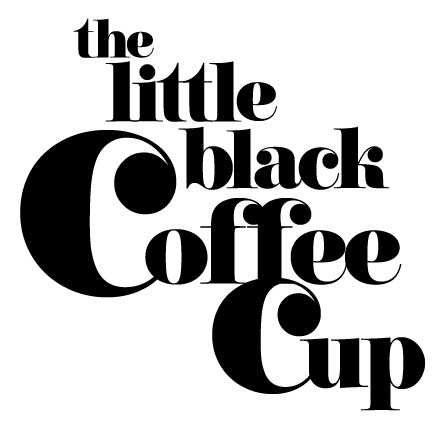Everything You Need to Know About Alternative Milks & Coffee

More and more people are choosing alternative milks these days. Whether it's ethical, due to dietary restrictions, for health purposes, or just plain old following trends, consumption of non-dairy milk is increasing. Having alternative milk offerings has become a crucial part of the business of specialty coffee. It enhances the café experience for a growing number of people who are choosing not to drink cow's milk.
As a non-dairy drinker, I spend as much time tasting, experimenting with, and thinking about dairy milk alternatives as I do about coffee. Here are a few of the most important things I've come across in my research:
1. Not all Non-Dairy Milks are Created Equal
In other words, ingredients matter. Almond milk, hemp milk, and soy milk all sound like relatively healthful beverages, but don't be fooled. As with any food product, it's buyer beware. In my research, I have found many barista-friendly alternative milks are loaded with thickeners and sugar. So, next time you visit your favorite coffee shop, ask to see the non-dairy carton. Take a moment to read the label, and become aware of what you are drinking. In my books, the less ingredients I see, and the less added sweeteners, the better.
If you happen to come across carrageenan on the label, steer clear. Carrageenan is suspected of causing gut irritation, inflammation, and cancer. Oh, and, don't be afraid to tell your barista about suspicious non-dairy milks. They might be the shop owner, or be willing to pass along the message, and that's how things change for us non-dairy drinkers.
Boxed Almond Milk Cappuccino, Sightglass Coffee, San Francisco
2. You Are Less Likely to Get Pretty Latte Art
The reason you received a amoeba on top of your non-dairy flat white instead of a rosetta is not because your barista is a failure—it has to do with science. Cow's milk makes lovely micro-foam when heated due to it's unique chemical makeup of fats, proteins and carbohydrates. The protein casein in particular is critical in creating a stable, silky foam and sufficient milk fats are also important (which is why skim milk is more difficult to steam).
Since alternative milks have a completely different chemical makeup than their dairy counterparts, and are low in proteins, they are prone to a natural separation, and do not stretch or stabilize in the same way. This is the reason why thickeners (like carrageenan) and stabilizers (like guar gum) are added to packaged alternative milks. That said, it's not impossible to to get gorgeous latte art on a coconut milk cortado—but even the most talented latte artists will tell you—getting nice definition out of an alternative milk is more difficult.
Also, keep in mind that espresso machine steam wands have been designed specifically to heat dairy milk perfectly. It makes sense they don't treat alternative milks right. Right? If nothing else, take solace in this: having the opportunity to drink a clean and healthful non-dairy milk trumps gorgeous latte art any day of the week.
Boxed Almond Milk Cortado, Rooster Coffee, Toronto
3. It's Going to Cost You More
So, not only does your Instagram have lackluster alternative milk latte art, you paid more for your latte—what gives?! You will find anywhere from a 50¢ to a $7 up charge for a dairy free beverage (see: The $10 latte from Alfred Coffee). Though alternative milks are becoming extremely popular—and arguably necessary for anyone in the business of coffee to provide—they are a premium ingredient.
Dairy is subsidized by the government (in the U.S. & Canada) so it's incredibly cheap for what it is. The average rate for a gallon of dairy milk is anywhere from $2.04 (for conventional) to $4.09 (for organic). Though I couldn't find similar data on non-dairy milks (it's not a commodity), even boxed, shelf stable, alternative milks are more expensive than fresh organic cow's milk.
As it would follow, fresh non-dairy milks are more expensive than the boxed stuff. Once you learn the labor involved, as well as the short shelf life of house-made alternative milk, paying big bucks for it makes a heck of a lot of sense.
Boxed Almond Milk Cappuccino, Birds & The Beets, Vancouver, B.C.
Fresh Almond Milk Gibraltar, Blue Bottle Coffee, Abbot Kinney, Los Angeles
4. Your Barista Will Probably Know What Coffee will Pair Best
If you are the adventurous coffee type, and are looking to try the seasonal single-origin espresso offerings, you might want to consult with your barista before choosing a beverage made with alternative milk. Since alternative milks like almond or hemp have such a distinctive flavor, they often taste terrible when paired with certain coffees.
If you are visiting a cafe that uses scales, and pays attention to things like roast dates and flavor notes, ask you barista what they recommend to pair with non-dairy milk. Generally speaking, a really bright or acidic Kenyan coffee is probably going to taste terrible with almond milk—but don't take my word for it—your barista should be dialed in to what the current espresso offering is tasting like and be able to point you in the right direction.
Fresh Almond Milk Macchiato, Civil Coffee, Los Angeles
5. Access to Fresh Non-Dairy Milk is a Huge Luxury. It's also the future
If you are lucky enough to live on the west coast, it's not unusual to find fresh non-dairy milks on the cafe menu. For the rest of us, it's an incredibly rare and welcome luxury. These prized milks are either made in-house like the almond-macadamia milk at G&B Coffee, or the result of a collaboration between a juice company and coffee shop like Verve Coffee & Juice Served Here.
Dairy milk has notoriously been treated as an afterthought in the coffee world, but thankfully this is starting to change. With the growing demand for alternative milks, it makes sense that cafe's—which spend hours dialing in coffees—would begin to pay closer attention to the increasing number of non-dairy milks their beans are being paired with.
As most trends slowly trickle east, I'm betting fresh non-dairy milk is in the bright future of the specialty coffee shop near you.
Fresh Almond Milk, 33 Acres Brewing, Vancouver B.C.
6. Try an Iced Drink made with Alternative Milk
So you've tried an almond milk latte, and you don't like how it tastes—fair enough. I recommend next time you order that same latte iced. Sometimes less desirable flavors emerge during the alternative-milk steaming process (I haven't found any conclusive research as to the details of why... yet!). Almond milk can become particularly sour and have an pungent flavor when heated, while soy tends to go clumpy. Choosing to enjoy a non-dairy drink cold can allow for a much more pleasant drinking experience and a less offensive coffee pairing. Give it a try!
House-made Unsweetened Almond Milk Cappuccino, Impact Kitchen, Toronto
7. Sometimes it's Better to Opt Out
If you are steering clear of cow's milk the best choice may be to skip the substitutes entirely and drink your coffee black. Whether you are trying to save money, or are suspicious of the ingredients in your local cafe's alternative milk, you can use your dairy avoidance as an opportunity to develop your coffee tasting palette. Opting out of milk altogether can encourage you to discover new flavors and nuances in your daily cup.
Boxed Almond Milk Cortado, Rocanini Coffee Roasters, Vancouver
8. Alternative Milk is Really Easy & Affordable to Make
Once you realize how simple it is to make alternative milks, your world will change forever. Okay, maybe making non-dairy milk is not that ground breaking, but the point I am trying to make is—it's not rocket science. All you need is; over-night soaked nuts/seeds/grains, filtered water, and a blender to make a healthful and delicious non-dairy milk. In general, a 1 to 4 ratio of blended nuts to water will do. Filter your mixture through a cheese cloth, add a pinch of sea salt along with your desired sweetener, and you'll be off to the races.
Knowing how to make alternative milk is empowering for the non-dairy drinker. Homemade alternative milk is often a lot less expensive than the boxed stuff, and helps you appreciate access to fresh non-dairy in coffee establishments. And, if you are on exceptionally good terms with your local specialty coffee shop, it's likely they will allow you to bring your own, and steam it into a delicious and healthful cappuccino for you.
Housemade Almond Macadamia Milk Flat White, Paramount Coffee Project, Los Angeles
Any thoughts on non-dairy milk? Please don't hesitate to reach out via the 'say hello' page, I am eager to continue the conversation.










